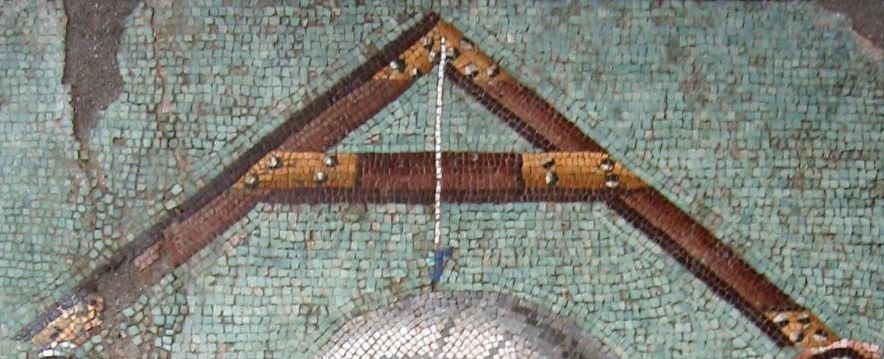“If You Reject Absolutely Any Single Sensation … You Will Reject Every Standard of Truth.”
 Yesterday I had the opportunity to spend some quality time with a close friend and discuss philosophy. As we inevitably got to the point of discussing the “origin of the universe” and the confusing speculations of the competing theories of quantum physics, I reminded him of my admiration for Epicurus and one of his key foundational principles: that no matter how seductive the theory, in order to live we must trust the senses, and we must never allow “reasoning” that is not based on clearly-established fact to lead us to doubt that which we can see for ourselves.
Yesterday I had the opportunity to spend some quality time with a close friend and discuss philosophy. As we inevitably got to the point of discussing the “origin of the universe” and the confusing speculations of the competing theories of quantum physics, I reminded him of my admiration for Epicurus and one of his key foundational principles: that no matter how seductive the theory, in order to live we must trust the senses, and we must never allow “reasoning” that is not based on clearly-established fact to lead us to doubt that which we can see for ourselves.
First a reminder: there is no physical principle more central and more important than “nothing can be created from nothing.” Epicurus himself established the principle and Lucretius sets it forth as our starting point in Book I. If ever an example of “something from nothing” were to be shown, Epicureanism itself would demand that we close our Epicurean texts and forget them forever. But there is no cause for concern: all of our own personal experience, plus all of the experiences reliably reported to us by reasonable people throughout history, supports the observation that “nothing can be created from nothing.”
Now let’s turn to Doctrine 24. Epicurus.net translates as follows:
If you reject absolutely any single sensation without stopping to distinguish between opinion about things awaiting confirmation and that which is already confirmed to be present, whether in sensation or in feelings or in any application of intellect to the presentations, you will confuse the rest of your sensations by your groundless opinion and so you will reject every standard of truth. If in your ideas based upon opinion you hastily affirm as true all that awaits confirmation as well as that which does not, you will not avoid error, as you will be maintaining the entire basis for doubt in every judgment between correct and incorrect opinion.
The essential application of Doctrine 24 to this discussion is clear: If we accept the truth that “nothing can be created from nothing” then we must never give credence for a moment to any speculation – be it philosophical, religious, or “scientific” – that asserts a conclusion which is contrary to the established fact that nothing can be created from nothing.
In Doctrine 24 we thus find an anchor for our confidence in rejecting both (1) the religious assertion that the universe was “created” by “god” at a single point in time, and (2) those “scientific” theories of quantum mechanics that would have us believe such nonsense as our cats being dead or alive based on how we look at them.
It is only by holding tight to the established facts — such as “nothing can be created from nothing” — that we are fortified against the doubts and fears that inevitably arise once we admit anyone’s speculation that “maybe something can be created from nothing.” In Epicurus’ time this principle could wait until 24th in the list – today it is more important than ever to keep this Doctrine close to the top of our minds.
And here we close with Lucretius’ formulation of our urgent need for Doctrine 24, from Book IV (Munro translation):
Many are the other marvels of this sort we see, which all seek to shake as it were the credit of the senses: quite in vain, since the greatest part of these cases cheats us on account of the mental suppositions which we add of ourselves, taking those things as seen which have not been seen by the senses.
For nothing is harder than to separate manifest facts from doubtful which straightway the mind adds on of itself.
Again if a man believe that nothing is known, he knows not whether this even can be known, since he admits he knows nothing.
I will therefore decline to argue the case against him who places himself with head where his feet should be.
And yet granting that he knows this, I would still put this question, since he has never yet seen any truth in things, whence he knows what knowing and not knowing severally are, and what it is that has produced the knowledge of the true and the false and what has proved the doubtful to differ from the certain.
You will find that from the senses first has proceeded the knowledge of the true and the false and that the senses cannot be refuted.
For that which is of itself to be able to refute things false by true things must from the nature of the case be proved to have the higher certainty.
Well then, what must fairly be accounted of higher certainty than sense?
Shall reason founded on false sense be able to contradict them, wholly founded as it is on the senses?
And if they are not true, then all reason as well is rendered false.
Or shall the ears be able to take the eyes to task, or the touch the ears? Again shall the taste call in question this touch, or the nostrils refute or the eyes controvert it? Not so, I guess; for each apart has its own distinct office, each its own power; and therefore we must perceive what is soft and cold or hot by one distinct faculty, by another perceive the different colors of things and thus see all objects which are conjoined with color.
Taste too has its faculty apart; smells spring from one source, sounds from another.
It must follow therefore that any one sense cannot confute any other.
No nor can any sense take itself to task, since equal credit must be assigned to it at all times.
What therefore has at any time appeared true to each sense, is true.
And if reason shall be unable to explain away the cause why things which close at hand were square, at a distance looked round, it yet is better, if you are at a loss for the reason, to state erroneously the causes of each shape than to let slip from your grasp on any side things manifest and ruin the groundwork of belief and wrench up all the foundations on which rest life and existence.
For not only would all reason give way, life itself would at once fall to the ground, unless you choose to trust the senses and shun precipices and all things else of this sort that are to be avoided, and to pursue the opposite things.
All that host of words then be sure is quite unmeaning which has been drawn out in array against the senses.
Once more, as in a building, if the rule first applied is wry, and the square is untrue and swerves from its straight lines, and if there is the slightest hitch in any part of the level, all the construction must be faulty, all must be wry, crooked, sloping, leaning forwards, leaning backwards, without symmetry, so that some parts seem ready to fall, others do fall, ruined all by the first erroneous measurements; so too all reason of things must needs prove to you distorted and false, which is founded on false senses.

